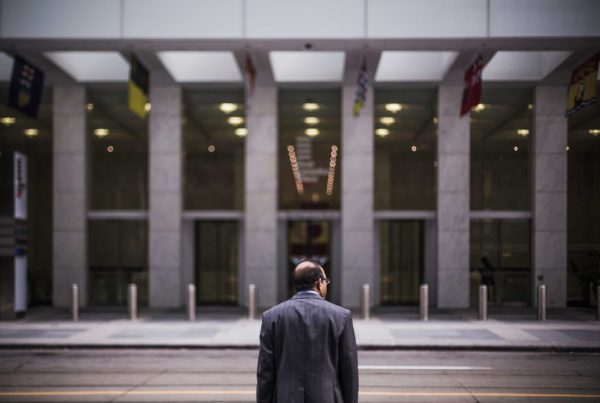Judicial Review
Read our general information in relation to Judicial Review below. Contact us directly for specific advice
Judicial review of migration decisions
In most instances, you can seek judicial review of a decision by the Administrative Review Tribunal where there is an “error of law”.
Judicial review is the process through which Courts ensure that decisions made under the Migration Act, including by the Administrative Review Tribunal (formerly the Administrative Appeals Tribunal) and the Minister (acting personally) are made ‘according to law.’ If a decision is not made according to law, the Court will set aside the decision and send the matter back to the decision-maker to be redetermined.
Eligibility
- The Federal Circuit and Family Court of Australia (Circuit Court) reviews decisions made by the Tribunal. This includes most visa refusal and nomination refusal decisions.
- The Federal Court of Australia (Federal Court) reviews decisions made by the Minister acting personally or by the Tribunal’s General Division. These decisions usually relate to visa cancellations or refusals on ‘character grounds’ under s 501 of the Migration Act.
- In some instances only the High Court of Australia can review a migration decision, but this is rare.
Powers of the Court
- If the Court is satisfied that a decision is affected by jurisdictional error, it can make an order quashing (setting aside) the decision.
- The Court cannot substitute a decision for the decision-maker (the Court cannot grant a visa or decide not to cancel a visa). Instead, the Court will send the matter back to the decision-maker to be determined according to law.
- The Court can order that the Minister pay some of your legal costs if your application is successful.
Judicial review considerations
- Courts can only decide whether the decision was lawful. A Court cannot change a decision only because it disagrees with the conclusion reached by the decision-maker.
- A decision is unlawful if it is affected by a ‘jurisdictional error.’ The definition of ‘jurisdictional error,’ and this area of law generally, is complex.
- An error cannot be jurisdictional if it could not have affected the decision ultimately reached by the decision-maker.
Examples of jurisdictional error
- Misidentifying the issues that need to be determined when making a decision.
- Failing to take into account a mandatory consideration (or taking into account a prohibited consideration).
- Failing to take into account relevant evidence or material (or taking into account irrelevant evidence or material).
- Making a decision so unreasonable that no reasonable person could reach the same decision.
Timeframe and processes
Judicial review of migration decisions
Strict timeframes and processes apply to judicial review applications, whether made to the Federal Circuit and Family Court of Australia (FCFCoA) or Federal Court of Australia (Federal Court). Applications for judicial review are adversarial, which means that the decision you want reviewed by the Court will be defended by experienced lawyers appointed by the Minister (even if the decision you want reviewed was made by the Tribunal).
Timeframes
- Any application for judicial review of a Tribunal’s decision, whether to the Circuit Court or Federal Court, must be filed within 35 days after the decision was made by the Tribunal.
- Any application for judicial review of a decision made by the Minister personally must be made to the Federal Court within 35 days after the date the Notice of Decision was issued.
- The Court can only extend these timeframes in limited circumstances.
Making an application
- In order to apply for judicial review of a migration decision you must prepare, file and serve:
- an originating application setting out the grounds on which you allege the decision is affected by jurisdictional error; and
- a supporting affidavit annexing a copy of the decision you want the Court to review.
After making an application
- The Court will set your application down for a First Court Date. The purpose of this first hearing is to set the schedule of steps to be taken by both you and the Minister’s lawyers. If you can agree to a schedule with the Minister’s lawyers before the First Court Date, you will usually not have to attend.
Process
- The usual series of steps taken in an application for judicial review are:
- Minister’s lawyers file a ‘Court Book’ composed of all documents and material before the decision-maker at the time of making their decision;
- you prepare, file and serve a written outline of your arguments to the Court;
- the Minister prepares, files and serves a written outline;
- a hearing takes place before the judge, where you (or your lawyer) and the Minister’s lawyers make oral arguments to the Court;
- the Court makes its decision, sometimes at the end of the hearing but more commonly after reserving judgement for further consideration.
- In some circumstances you may be required to file an amended originating application altering your ‘grounds of review’ or further submissions after the conclusion of the hearing.
Costs
Judicial review of migration decisions
A number of different Court fees, including filing fees and setting down fees, are usually payable to the Court when you apply for judicial review. The amount of these fees is different for the Federal Circuit and Family Court of Australia (Circuit Court) and Federal Court of Australia. Additionally, if your application for judicial review is unsuccessful, it is likely that the Court will order you to pay a substantial part of the legal fees paid by the Minister to defend against your application.
No Court fees if you are in detention
- If you are currently detained, including in immigration detention, you are automatically exempt from paying any Court fees, including filing fees or setting down fees. There are other categories of person are also exempted from paying Court fees.
Court Fees – Circuit Court
- Filing Fee: $3,920.00
- The Circuit Court’s filing fee can be reduced by 50 per cent to $1,960.00 if the Court is satisfied that paying the full fee would cause you financial hardship. The Court can waive the whole of the filing fee if it is satisfied that paying the reduced fee would still cause you financial hardship.
- Setting down fee: $970.00
- The Circuit Court can waive the whole of this fee if it is satisfied that paying it would cause you financial hardship.
Court Fees – Federal Court
- Filing Fee: $1,695.00
- Setting Down Fee: $3,390.00
- These fees can be waived if the Court is satisfied that paying them would cause you financial hardship.
Order for costs
- It is usual for the Court to order that the unsuccessful party pay a significant part of the successful party’s legal costs. This includes applications for judicial review of migration decisions. If your application is unsuccessful, it is likely that the Court will make an order requiring you to pay money to the Minister. If you are legally represented and are successful in your application, the Court will likely order the Minister to pay a significant part of your legal costs.
Professional Fees
- Because of the nature and intensity of judicial review proceedings, the cost of retaining lawyers to act on your behalf can be substantial. To provide certainty for our clients, Hannan Tew Lawyers acts in judicial review proceedings on a partially conditional (no-win, no-fee) basis in applications for judicial review. When we offer to act on your behalf, we will set an ‘out-of-pocket cap’ which limits the amount you will have to pay us for legal fees regardless of outcome. The balance of our fees will only be payable if your application is successful and should be covered by any order for costs made in your favour by the Court.
- The usual range of our ‘out-of-pocket cap’ is $7,000.00 to $9,000.00 (exclusive of GST), but may be set higher or lower depending on your particular circumstances. The factors we take into account when setting your out-of-pocket cap include:
- the strength of your case;
- whether you are detained;
- your financial circumstances.
Judicial Review
Frequently Asked Questions
Can I apply for judicial review?
You can apply for judicial review of migration decisions made by:
- the Administrative Review Tribunal (formerly the Administrative Appeals Tribunal);
- the Immigration Assessment Authority; or
- the Minister acting personally.
In general, you cannot apply to the Circuit Court or Federal Court for judicial review if you are able to have the decision reviewed by the Administrative Review Tribunal.
Which Court do I apply to for judicial review?
Decisions made by the Administrative Review Tribunal, which generally involve non-character related visa decisions, and the IAA can only be reviewed by the Circuit Court.
Character-related decisions made by the Minister personally or by the ART can only be reviewed by the Federal Court.
How long do I have to apply for judicial review?
Any application for judicial review must be made within 35 days after
- in the case of a decision made by the ART–the day the ART makes its decision; or
- in the case of a decision made personally by the Minster-the date the notice of decision was issued.
How much does an application for judicial review cost?
The Court fees payable depend on the Court you are applying to. Court fees are waived if you are currently detained and can be reduced or waived if paying the fees would cause you financial hardship.
In addition to Court fees, if your application is unsuccessful, you will likely be ordered to reimburse the Minister for a substantial part of the legal fees paid defending your application.
How long does the judicial review process take?
The amount of time it takes for a judicial review application to be determined depends on a number of factors, including the type of decision you are seeking to have reviewed, the Court you have applied to, and whether you are in immigration detention.
Can I appeal the Court’s decision?
Yes. If the Court dismisses your application for judicial review you have the right to appeal. If your application was dismissed by the Circuit Court, a single Justice of the Federal Court will usually hear the appeal. If your application was dismissed by the Federal Court, a Full Court of the Federal Court, composed of at least three Federal Court Justices, will hear your appeal. Any appeal must be commenced within 28 days of the Court making its decision.
Disclaimer
The information contained here is offered for informational purposes only and does not constitute legal advice or give rise to an attorney-client relationship between you and our firm. The information: (i) must be regarded as a practical guide for general information and not a process guide for determining the specific immigration requirements of the countries covered, (ii) should not be a substitute for a more indepth analysis of applicable facts and circumstances conducted by competent professionals, and (iii) does not represent an opinion from Hannan Tew or any of its agents with regard to the laws of any of the jurisdictions concerned. The information does not guarantee the outcome or approval of any particular immigration application.
What can we do for you?
As a full service Australian immigration law firm, our experienced team can provide guidance on judicial review applications, which is the process through which Courts ensure that decisions made under the Migration Act, including by the Administrative Review Tribunal and the Minister (acting personally) are made ‘according to law.’
The latest AAT refusal
blogs, written regularly

How much will an ART (formerly AAT) review cost and how long will it take? (Updated on: 9 December 2024)

A Complete Guide to ART Visa Refusal Appeals (Updated: 5 December 2024)

Administrative Review Tribunal (ART) to commence in October 2024


